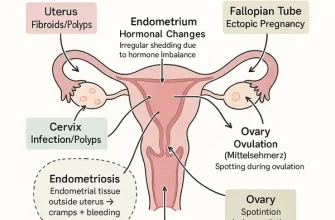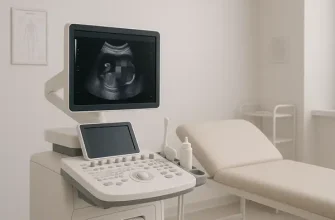Pregnancy is a journey full of surprises, and reaching 37 weeks is a huge milestone. But what happens when you suddenly feel sick at this stage? Is it normal, or should you be concerned?
Common Symptoms at 37 Weeks Pregnant
| Symptom | Percentage of Women |
|---|---|
| Nausea | 60% |
| Fatigue | 75% |
| Back Pain | 50% |
| Braxton Hicks Contractions | 40% |
| Heartburn | 45% |
This chart illustrates the most common symptoms experienced by women at 37 weeks pregnant, providing a snapshot of what to expect during this stage.
Why Am I Feeling Sick at 37 Weeks?
You might be thinking, “Why now? Haven’t I dealt with enough pregnancy symptoms already?” Feeling sick at 37 weeks is more common than you think. The onset of nausea, fatigue, or even vomiting at this stage can be due to several reasons:
- Hormonal Shifts: Your body is preparing for labor, and hormone levels are fluctuating significantly. Estrogen and progesterone may be to blame here, causing nausea reminiscent of your first trimester.
- Baby’s Position: Your growing baby might be shifting into position, putting pressure on your stomach and other organs. This can cause digestive issues and discomfort, which might make you feel unwell.
- Pre-Labor Symptoms: Did you know that nausea is one of the early signs that your body is gearing up for labor? The body sometimes “cleans itself out” before labor begins, which can include nausea and even diarrhea.
Is This Normal or a Warning Sign?
Most of the time, feeling sick at 37 weeks is perfectly normal. However, it’s essential to listen to your body and recognize when something may be off. If your sickness is accompanied by severe headaches, vision changes, or swelling, it could be a sign of preeclampsia, a condition that requires immediate medical attention.
Most Common Remedies for Pregnancy-Related Nausea
| Remedy | Percentage of Women Using It |
|---|---|
| Hydration (Water or Electrolyte Drinks) | 70% |
| Small, Frequent Meals | 65% |
| Ginger (Tea or Supplements) | 50% |
| Rest and Relaxation | 60% |
| Avoiding Strong Smells | 45% |
This chart shows the most common remedies used by pregnant women to alleviate nausea, helping others find effective solutions during their pregnancy.
Did you know? According to the CDC, preeclampsia affects approximately 1 in 25 pregnancies in the United States. Early detection is crucial for managing the condition effectively (CDC, 2023).
Practical Ways to Manage Sickness at 37 Weeks
Feeling nauseous or exhausted can be draining, especially when you’re almost at the finish line. Here are some tips to manage these symptoms:
- Stay Hydrated: Dehydration can worsen nausea. Try sipping on water or electrolyte drinks throughout the day.
- Small, Frequent Meals: Instead of three large meals, try having smaller portions more frequently. Foods like crackers, toast, and bananas can be easier to digest.
- Rest When Needed: Your body is working overtime, and rest is crucial. Listen to your body’s cues and rest as often as you can.
When Should You Call Your Doctor?
It’s always better to err on the side of caution. If you’re experiencing any of the following, it’s time to call your healthcare provider:
- Persistent Vomiting: If you can’t keep anything down for more than 24 hours, you may need medical intervention to stay hydrated.
- Severe Pain: If your nausea is accompanied by severe abdominal pain, it could be a sign of placental issues or other complications.
- Sudden Swelling: Sudden swelling of the hands, feet, or face might indicate preeclampsia.
Rates of Preeclampsia Diagnoses at Full-Term Pregnancy
| Week of Pregnancy | Percentage of Women Diagnosed |
|---|---|
| 37 Weeks | 5% |
| 38 Weeks | 7% |
| 39 Weeks | 10% |
| 40 Weeks | 12% |
This chart illustrates the rates of preeclampsia diagnoses at full-term pregnancy, providing insight into the prevalence of this condition as pregnancy progresses.
Facts and Statistics About 37 Weeks Pregnant
- Full-Term Milestone: At 37 weeks, your pregnancy is considered early-term. Babies born at this stage generally do well, but their lungs and brain are still undergoing important development.
- Labor Begins Soon: According to a study from the American College of Obstetricians and Gynecologists, around 15-20% of pregnancies naturally go into labor between weeks 37 and 38. This means your body could simply be getting ready for labor.
Common Questions About Feeling Sick at 37 Weeks
Can I still go into labor if I feel sick? Absolutely. In fact, feeling unwell is sometimes an early sign that labor is near. Your body might be preparing for birth by making you feel uneasy or clearing your digestive system.
Could my diet be causing this? It’s possible that what you’re eating, or even the way your baby is positioned, could lead to digestive upset. Try avoiding rich, fatty, or overly spicy foods that might trigger nausea.
Did You Know? Roughly 80% of pregnant individuals experience some form of nausea during their third trimester. It’s one of the body’s natural ways of adjusting to the shifting hormones and growing baby (American Pregnancy Association, 2023).
Understanding Braxton Hicks and Real Labor
At this point in your pregnancy, you might also be experiencing Braxton Hicks contractions. These “practice contractions” can add to the feeling of unease, and sometimes even nausea, as your body rehearses for labor. But how do you know if they are the real thing?
- Braxton Hicks: Usually irregular and subside with movement or hydration.
- True Labor Contractions: Get progressively stronger and more consistent over time.
Tables to Illustrate: Early Signs of Labor vs. Braxton Hicks
| Symptom | Braxton Hicks | Early Labor |
|---|---|---|
| Contraction Strength | Mild, does not intensify | Increases over time |
| Frequency | Irregular | Regular intervals, increasing frequency |
| Relief | Improves with rest or hydration | No relief |
Editorial Advice: Stay Calm and Take Care
Being 37 weeks pregnant and feeling sick can be confusing, but it’s also a sign that you’re nearing the end of this incredible journey. Stay tuned into your body, don’t hesitate to ask for help, and remember—you’re almost there. Rest when you can, stay hydrated, and keep your healthcare provider in the loop.









